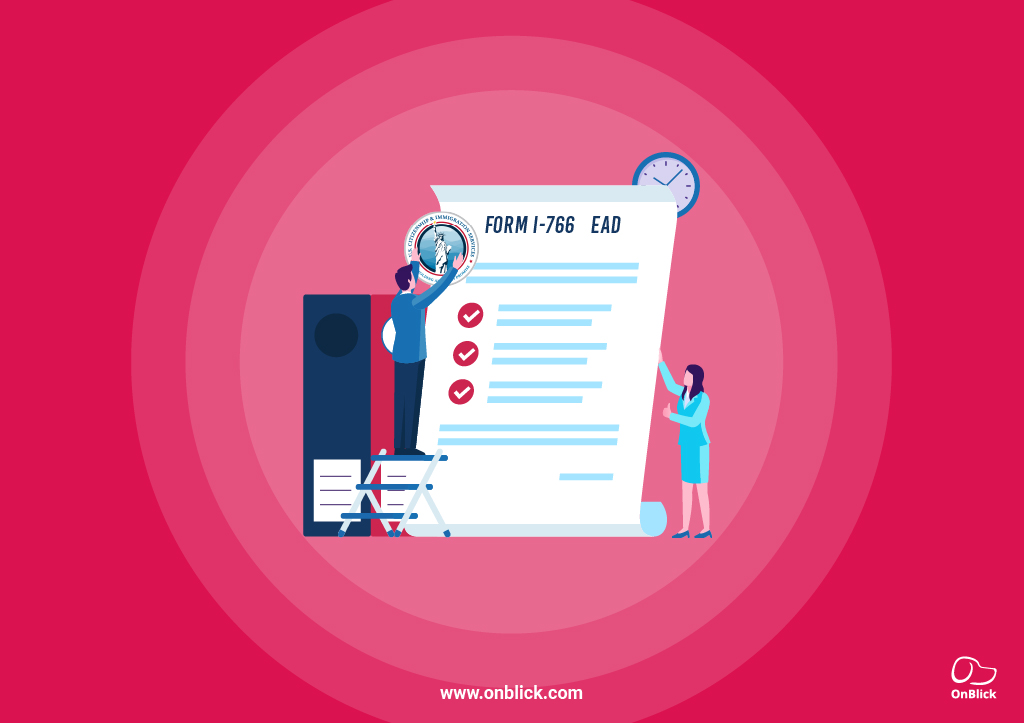On November 13, 2025, the Department of Homeland Security (DHS) and U.S. Citizenship and Immigration Services (USCIS) announced several measures intended to reinforce the integrity of the nation’s immigration system. The agency reports that it has focused on closing loopholes and strengthening oversight across key immigration pathways since January 2025.
The announcement emphasizes that legal immigration must remain tied to genuine employment, appropriate wage commitments, and full regulatory compliance. USCIS Spokesman Matthew Tragesser stated that large-scale unauthorized migration stresses critical systems and undermines labor protections, underscoring the administration’s priority to ensure that lawful immigration functions as intended.
This update highlights several actions that affect employment-based immigration processing and work authorization, which are the focus of this blog post.
Summary of USCIS Integrity Measures
While the USCIS release covers a broad range of immigration policy topics, several of the changes are directly relevant to workforce compliance. Key items include:
- USCIS reports it is prioritizing lawful employment-based immigration and improving adjudication of employment-based nonimmigrant (e.g., H-1B, L-1) and immigrant (e.g., EB-2, EB-3) filings. The agency cited recent data supporting improved approval rates and increased usage of employment-based pathways.
- The agency emphasized that employers who file petitions must ensure that evidence of employment and wage terms align with the role and the law, reinforcing the concept that “legal immigration works best when backed by real jobs, wages and regulatory compliance”.
- USCIS also stated that adjudications will emphasize careful screening of whether positions are genuine; wage levels are appropriate, and workers are lawfully employed, particularly in the employment-sponsored context.
While those are high-level changes, for HR and compliance teams, the message is clear: expect more scrutiny of employment-based filings, ensure documentation is robust, and monitor your sponsorship program for compliance.
Intensified Screening, Vetting, and Fraud Enforcement
USCIS now employs rigorous screening protocols and expanded its collaboration with ICE and other agencies to identify security threats and compliance violations. Since January 2025:
- Over 3,200 individuals with criminal histories or removal orders have been referred to ICE, leading to the apprehension of nearly 2,000 at USCIS facilities.
- More than 13,000 fraud and security-related referrals have been made, including over 300 for terrorist affiliations.
- New vetting includes reviewing applicants’ social media for anti-American activity. In fiscal 2025 alone, over 12,500 individual social media checks have been performed.
- The historic "Operation Twin Shield" in Minneapolis revealed widespread marriage, H-1B, and student visa fraud, underscoring a new era of targeted enforcement.
These changes place a premium on complete transparency and documentation from petitioners and beneficiaries, with severe consequences for fraud or omission.
Broader Law Enforcement Role for USCIS
With new law enforcement authorities directly delegated from DHS, USCIS officers are newly empowered to investigate, arrest, and present for prosecution individuals violating immigration laws. A major recruitment campaign launched in September 2025 brought in close to 35,000 applicants for these Homeland Defender roles, showing the agency’s renewed focus on safeguarding the legal immigration process from abuse.
Reform of the Naturalization and Benefit Adjudication Process
Naturalization applicants can expect a fully revamped vetting process, including:
- A revised civics test with expanded content on U.S. history and government.
- Enhanced reviews of moral character, shifting emphasis to positive community contributions.
- The return of neighborhood investigations to verify applicants' claims and backgrounds.
For all immigration applicants, any indication of support for “anti-American ideologies” is now a negative factor in adjudication.
End of Automatic EAD Extensions
A seismic shift for HR and compliance teams: DHS has issued a rule ending the automatic extension of Employment Authorization Documents (EADs) for renewal applicants in many categories. Previously, applicants could rely on a 540-day automatic extension while awaiting USCIS decision, allowing businesses to keep workers on payroll. Going forward:
- Aliens needing renewed work authorization must await USCIS adjudication and successful reissuance of EAD before continuing employment.
- Employers must track expirations more closely and plan for longer processing times when re-verifying Form I-9 compliance.
This enhances the security of the workforce but introduces the risk of unplanned employment gaps and operational disruption if EAD renewals are delayed.
New H-1B Petition Fee and Visa Program Restrictions
Effective September 21, 2025, a Presidential Proclamation mandates that every H-1B petition be accompanied by a $100,000 payment as a condition of eligibility. This move aims to limit program misuse and ensure only highly committed employers sponsor skilled foreign workers. Additional announced reforms include:
- Increased investigation and enforcement of wage, documentation, and eligibility requirements.
- Additional scrutiny of third-party placement and consulting arrangements.
- Expected changes to the cap allocation and lottery process in upcoming years.
Employers must budget for these increased costs and ensure absolute compliance with documentation and eligibility throughout the sponsorship lifecycle.
Renewed Focus on Public Charge and Financial Self-Sufficiency
USCIS reinstated longstanding authority for officers to exclude aliens who are likely to become a public charge: re-emphasizing the need for foreign nationals to prove they are not primarily dependent on government assistance. Employers may see heightened scrutiny of employees’ benefit usage and will need to educate sponsored workers on documentation required for self-sufficiency.
DHS Immigration Reforms: Impact on Employees
For foreign nationals, these reforms mean:
- Greater documentation burdens at every stage: beneficiaries must prepare for social media reviews, possible interviews, and more stringent moral character checks.
- EAD renewal gaps may disrupt continuity of employment, affecting eligible noncitizens relying on EADs for lawful work.
- H-1B candidates face restricted opportunities unless employers can justify the $100,000 petition fee and comply with stricter eligibility reviews.
- Those pursuing permanent residence or naturalization will undergo more exhaustive background and neighborhood reviews.
Foreign talent must focus on the accuracy and completeness of all immigration filings and remain engaged with employers’ HR teams to preempt compliance challenges.
DHS Immigration Reforms: Impact on Employers
For employers, these DHS and USCIS changes create a new landscape where:
- Compliance is more complex: Every aspect of visa sponsorship (especially H-1B), work authorization, and employee documentation faces new levels of scrutiny.
- Planning is critical: HR and immigration teams must initiate EAD renewals far in advance and monitor expiring work authorization to avoid unauthorized employment.
- Financial impact: The six-figure H-1B petition fee alters the cost-benefit analysis for sponsoring new or continuing foreign workers, pressing companies to evaluate talent strategies.
- Audit and recordkeeping: Fraud enforcement campaigns like Operation Twin Shield make careful Form I-9 documentation and immigration record auditing essential. Any irregularity invites targeted investigation.
- Training and communication: Teams must educate both HR staff and sponsored employees on new risks, changing timelines, and documentation expectations.
Employers should work closely with experienced immigration counsel, update their compliance processes, provide proactive communication to affected employees, and consider internal auditing to prepare for heightened government oversight.
Action Steps for Employers
To prepare for these updates, employers may consider:
- Conducting a review of all sponsored employees to verify consistency across petitions, job duties, wages, and work locations.
- Updating immigration workflows, ensuring stronger pre-filing checks and documentation reviews.
- Enhancing recordkeeping, with clear processes for maintaining petition-related documents and audit files.
- Implementing regular internal compliance training for HR teams and hiring managers.
- Improving communication with employees regarding expectations, timelines, and obligations tied to their sponsored roles.
Conclusion
The latest policy measures from DHS and USCIS mark a determined move to secure the legal immigration system, prioritize American workers, and prevent abuse, particularly in employment-based visa categories. While these reforms boost compliance and security, they also require significant adjustments for both employers and foreign national employees. Proactive preparedness, strict documentation, and expert guidance will be critical for adapting to this rigorous new immigration environment.
How does OnBlick help?
OnBlick will continue to monitor DHS and USCIS to offer more details on this announcement as they become available. We remain ready to support your Form I-9 and immigration authorization tracking needs during this transition.
OnBlick’s I-9 Assist, E-Verify integration and Immigration Case Management tools help HR teams monitor EAD renewals, prevent lapses, and maintain full compliance with evolving USCIS regulations.
If you’d like to know more about our product and services, book a free OnBlick demo today.

.gif)

.png)
.png)











